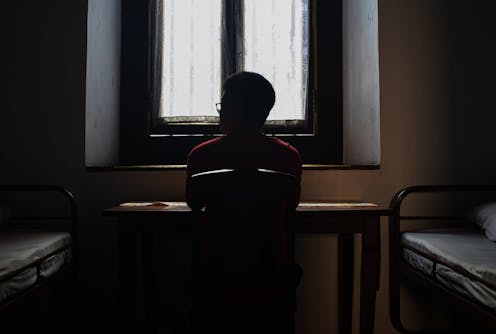Why coronavirus impacts are devastating for international students in private rental housing
- Written by Alan Morris, Professor, University of Technology Sydney

About half of international students in Australia are private renters and more than half of them rely on paid work to pay the rent, but most of the casual jobs they depend on have been lost in the coronavirus pandemic. The results of our recent survey (conducted pre-COVID-19) of international students living in private rental accommodation suggest up to half of them may now be unable to pay their rent. Many also live in quite crowded conditions, so will struggle to self-isolate even if they don’t lose their current housing.
Our survey covered all three post-secondary sectors – universities, vocational education and training, and English language (ELICOS) – and we received over 7,000 valid responses from students in the private rental sector in Melbourne and Sydney. Although the survey closed in mid-December and we have yet to finalise the report, the data suggest the knock-on effects of COVID-19 will have profound impacts on international students. About 565,000 are in Australia now, the government estimates.
Read more: Why housing evictions must be suspended to defend us against coronavirus
Working to pay the rent
Paying the rent was a major worry for many international students even before the pandemic. Just over one in three respondents agreed or strongly agreed they “worry about paying the rent each week”.
A staggering 22% said they “quite often go without necessities like food, so I can pay for my accommodation”. In response to the question, “In the last year, have you ever felt that you could become homeless?”, 17% said, “Yes”.
A critical finding is that just under half (46%) said they had to have a paid job to be able to pay the rent. Of the 43% who had a paid job (which suggests most of those who had to work to pay the rent had found a job), 44% worked in food services or hospitality. It is likely almost all employed international students are in casual jobs and thus have minimal job security.
The scale of recent job lay-offs in the hospitality industry suggests almost all these students will have lost their jobs. Most of the 16% who worked in retail and the 9% in health care and social assistance are probably also now jobless, along with those employed in other sectors.
When we asked students whether losing their job would mean they would not be able to pay the rent, 57% agreed or strongly agreed. Only a quarter disagreed or strongly disagreed. The results suggest 40-50% of the international students renting privately – about 150,000 people – may now be unable to pay their rent.
Although recent measures to prevent landlords evicting tenants who are in financial distress due to COVID-19 will help in some cases, the moratorium does not appear to prevent landlords evicting tenants for other reasons. “No grounds” evictions are seemingly still in place.
A spike in instances of discrimination related to COVID-19 could add to the risk of these students losing their accommodation.
Read more: Homelessness and overcrowding expose us all to coronavirus. Here's what we can do to stop the spread
To add to their vulnerability, international students are not eligible for sick leave or any of the recently announced government benefits. They will not be able to apply for the increased unemployment benefit or youth allowance. They are also not eligible for the recently announced wage subsidy.
The lack of any income support could encourage an international student to continue working while ill. They might then infect fellow workers, housemates and the general public.
Living in crowded share housing
The survey indicated half of the international students in the private rental sector had at least three housemates and 19% had five or more. One in four respondents shared their bedroom with someone other than a partner. About one in five shared their bedroom with two or more people.
What the data indicate is that the housing conditions of a large proportion of international students provide fertile ground for the coronavirus to spread. If an international student tests positive for COVID-19, they will probably not have a space where they can self-isolate.
Read more: Tracking the rise of room sharing and overcrowding, and what it means for housing in Australia
Ignorant of rights as tenants
Only one in four students disagreed or strongly disagreed that it was “difficult to find out what my rights are as a renter”. Just over half strongly agreed or agreed they “understand [their] rights as a renter”.
As well as not knowing their rights, another factor that could make students more vulnerable is only 60% said they were renting from a landlord or real estate agent. The rest are renting from a flatmate, families they may or may not know, their educational institutions, or student accommodation (Iglu, Urbanest, etc).
The rights of tenants in these situations are complex. Many would not have written agreements and are not necessarily covered by residential tenancy law.
Sector must stand up for students
Clearly, the situation of many international students in private rental accommodation is extremely precarious. COVID-19 could be a tipping point for many. Not only will they have no income, but they could find themselves homeless with no possibility of flying home to their families.
They might also not be able to pay their fees – around A$20,000 a semester for university students. This could result in their “confirmation of enrolment” being cancelled and their student visa being withdrawn. Students will then be in Australia illegally and could find themselves in immigration detention.
The post-secondary education sector has long depended on the revenue international students provide. There were 758,154 full-fee-paying international students in 2019. The situation demands that educational institutions urgently insist that government extend a helping hand to these students. They desperately need the same protections that local students and workers enjoy.
Authors: Alan Morris, Professor, University of Technology Sydney





